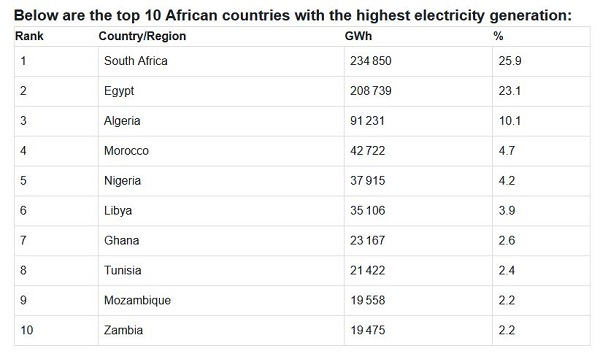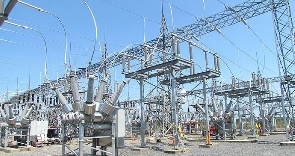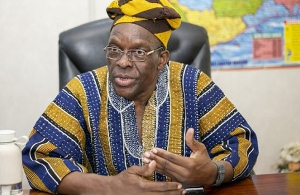The methods of electricity generation across Africa are heavily skewed toward fossil fuels, with natural gas making up 42% of production and coal contributing another 26%.
Electricity production is the backbone of modern economies, powering everything from industries and schools to homes and hospitals. It drives technological advancements and supports economic growth, making it a critical element of development.
In Africa, electricity generation is more than just about meeting energy needs; it plays a vital role in creating jobs, fostering innovation, and improving the overall quality of life. However, electricity production is not uniform across the continent, with some nations leading the charge as key contributors to Africa’s energy landscape.
South Africa emerged as the top producer, contributing 234,850 GWh, which accounted for 25.9% of the continent’s total output. Egypt followed with 208,739 GWh (23.1%), and Algeria produced 91,231 GWh (10.1%). Together, these three countries accounted for over half of the continent’s electricity output.
The methods of electricity generation across Africa are heavily skewed toward fossil fuels, with natural gas making up 42% of production and coal contributing another 26%.
While this reliance supports current needs, it also raises questions about sustainability and the transition to renewable energy sources like solar, wind, and hydropower.
Despite these advances, per-capita electricity consumption in Africa remains low—just 0.632 MWh per person in 2022, which is only 82% of the global average.
Infrastructure limitations and unequal access contribute to this disparity, even as demand continues to grow. Addressing these challenges requires expanding access to electricity while exploring cleaner, more sustainable energy sources for long-term progress.

Watch the latest edition of BizTech below:
Click here to follow the GhanaWeb Business WhatsApp channel
Click to view details



Business News of Monday, 30 December 2024
Source: africa.businessinsider.com

















